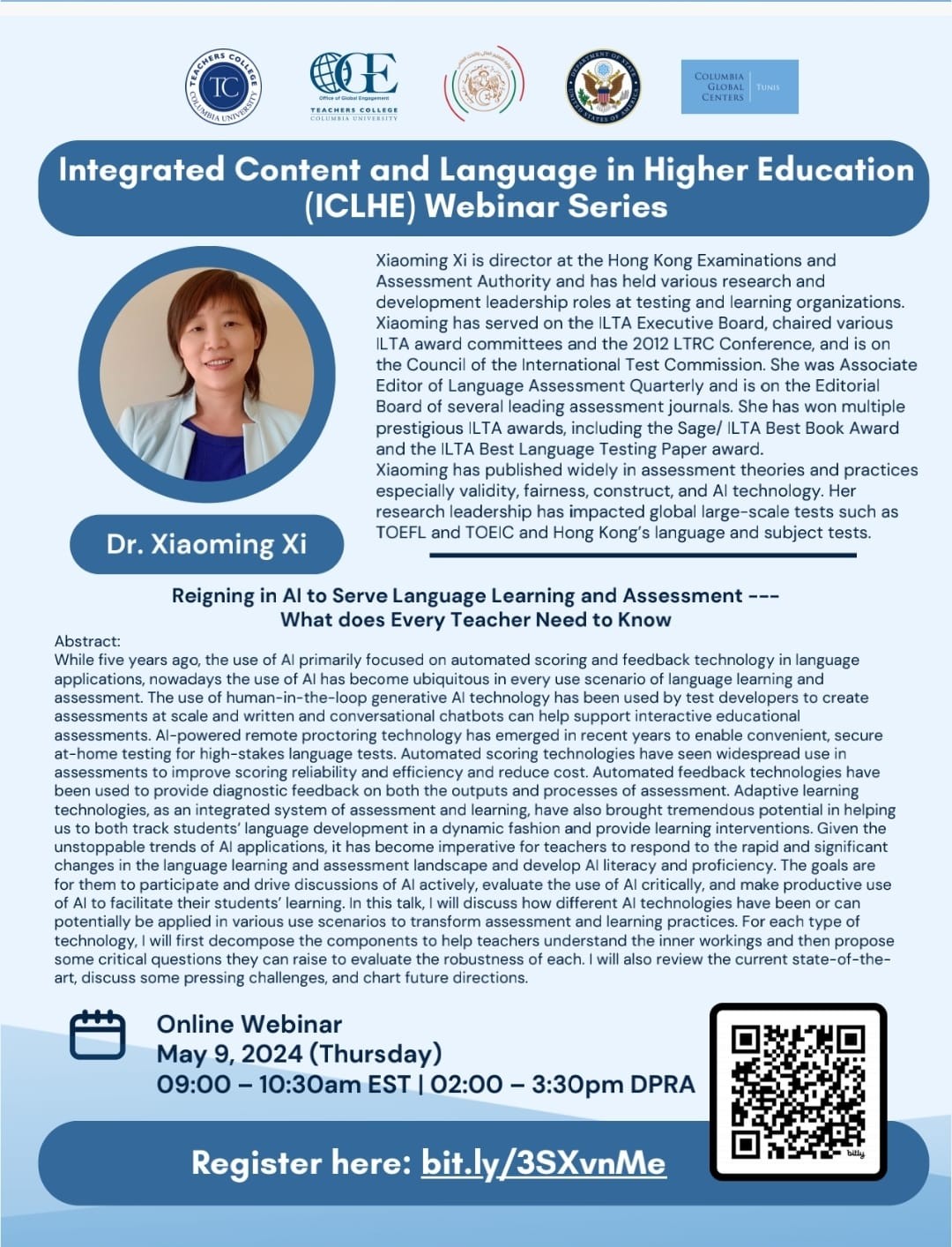This webinar is part of a series supported by a two-year grant aimed at enhancing Integrated Content and Language (ICL) teaching, learning, and assessment in Algerian Higher Education. This transformative initiative is a collaborative effort involving the Algerian Ministry of Higher Education and Scientific Research, the United States Department of State, the Columbia University Global Center in Tunis, and the Applied Linguistics/TESOL Program at Teachers College, Columbia University.
For the third webinar of this series, the speaker is Xiaoming Xi, Director at the Hong Kong Examinations and Assessment Authority. With a wealth of experience in research and development leadership roles at testing and learning organizations, Xiaoming has significantly contributed to the field of language assessment. She has served on the ILTA Executive Board, chaired various ILTA award committees, and chaired the 2012 LTRC Conference. Additionally, Xiaoming is on the Council of the International Test Commission and has been recognized with multiple prestigious ILTA awards, including the Sage/ILTA Best Book Award and the ILTA Best Language Testing Paper award. Her expertise encompasses assessment theories and practices, particularly in validity, fairness, construct, and AI technology. Xiaoming's research leadership has had a profound impact on global large-scale tests such as TOEFL and TOEIC, as well as Hong Kong's language and subject tests.
Abstract:
While five years ago, the use of AI primarily focused on automated scoring and feedback technology in language applications, nowadays the use of AI has become ubiquitous in every use scenario of language learning and assessment. The use of human-in-the-loop generative AI technology has been used by test developers to create assessments at scale, and written and conversational chatbots can help support interactive educational assessments. AI-powered remote proctoring technology has emerged in recent years to enable convenient, secure at-home testing for high-stakes language tests. Automated scoring technologies have seen widespread use in assessments to improve scoring reliability and efficiency and reduce cost. Automated feedback technologies have been used to provide diagnostic feedback on both the outputs and processes of assessment. Adaptive learning technologies, as an integrated system of assessment and learning, have also brought tremendous potential in helping us to both track students' language development in a dynamic fashion and provide learning interventions. Given the unstoppable trends of AI applications, it has become imperative for teachers to respond to the rapid and significant changes in the language learning and assessment landscape and develop AI literacy and proficiency. The goals are for them to participate in and drive discussions of AI actively, evaluate the use of AI critically, and make productive use of AI to facilitate their students' learning. In this talk, I will discuss how different AI technologies have been or can potentially be applied in various use scenarios to transform assessment and learning practices. For each type of technology, I will first decompose the components to help teachers understand the inner workings and then propose some critical questions they can raise to evaluate the robustness of each. I will also review the current state-of-the-art, discuss some pressing challenges, and chart future directions.
Register here.
